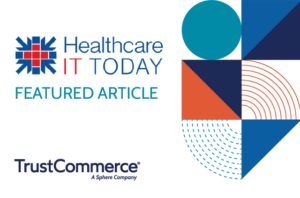Anyone with a smartphone or video streaming service is no stranger to the concept of recurring payments. Oftentimes, recurring payments are associated with subscription services for everything from Netflix to family security apps like Life 360. While many consumers enjoy the convenience of a “set it and forget it” approach to billing and payment, others hesitate to sign up for any service that includes any kind of automated recurring billing, even for services with a small monthly fee. Given this hesitancy, can providers hope to successfully apply recurring payment models in healthcare with their patients? The answer is a resounding yes.
In most other industries, billing and payment are fairly straightforward. As anyone who has ever been a patient knows, healthcare billing and payment are a whole different story. Most times, patients have no idea what their financial responsibility will be at the time of their appointment, and the insurance adjudication process can take weeks, if not months. Here are a few frequently asked questions (FAQs) regarding recurring payments and how they can benefit your practice and your patients.
Q: How are healthcare payment automation and recurring payments in healthcare different than those in other industries?
A: Healthcare automated recurring billing is primarily made up of installment plans for large balances or patients opting to keep a card on file for small, post-adjudication balances.
Installment plans are helpful for patients who will be paying off a large balance, but they also help patients who wish to make a deposit and “pay ahead” for things like elective surgeries or pricier treatments.
Q: How do patients feel about recurring payment options?
A: According to a 2020 study conducted by BillGo, “Two thirds of all bills are paid with one-time payments, while the other third are paid on a recurring basis. And online payments are the most common, accounting for 58% of one-time and 68% of recurring bills.” Your patients are generally American consumers. Therefore, it is reasonable to conclude that they are comfortable with and willing to set up healthcare payment automation with your practice as they would in other payment situations. According to a recent survey by US Bank, nearly half of respondents prefer to pay via a digital, contactless method, and nearly a third said they wished paying for healthcare was easier like in other industries. Overall, it appears that patients would welcome the ability to make automated recurring payments for the sake of ease and convenience.
Q: How can enabling automated recurring payments in healthcare benefit my patients and my practice?
A: Recurring payments either as an installment plan or a patient COF, streamline billing workflows for your staff, saving full-time equivalencies and enabling your staff to focus on other things, like helping patients. Healthcare payment automation also takes the guesswork out of billing for your patients, boosting your revenue with little additional effort for your staff.






